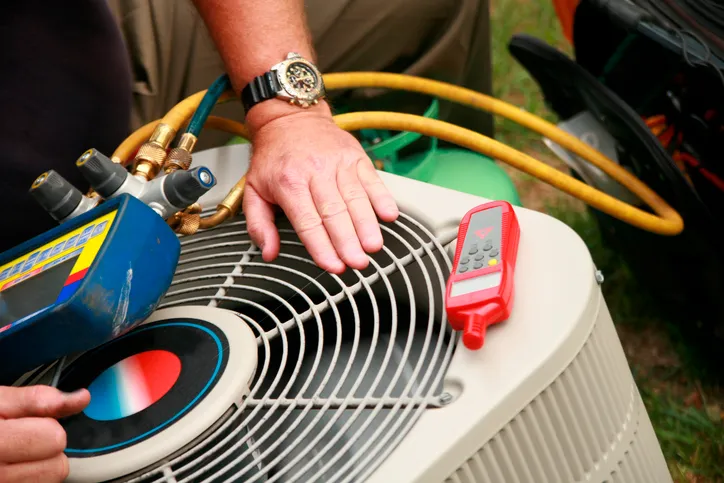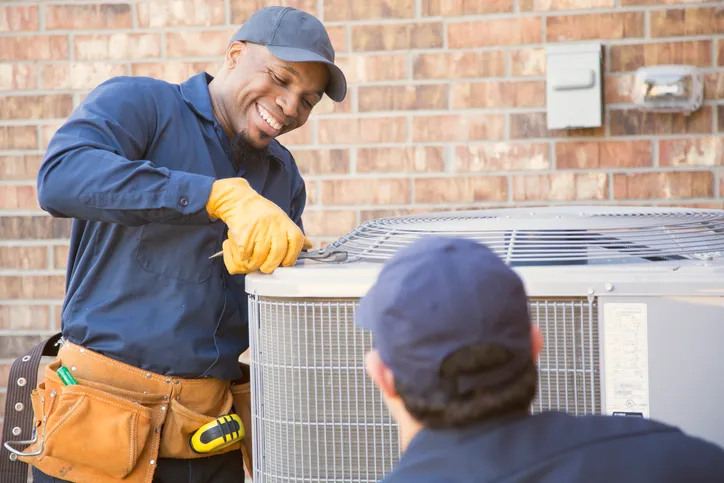HVAC Inspection for Real Estate in Dos Vientos Ranch, CA
Serving Ventura & Sacramento Counties

An HVAC inspection for real estate in Dos Vientos Ranch, CA is a focused, transaction-oriented service that helps sellers and buyers understand the condition, safety, and value of a home heating and cooling system before closing. In this community of newer planned homes with Mediterranean climate needs — hot, dry summers and mild winters with coastal breezes — HVAC performance directly affects buyer confidence, energy costs, and negotiation outcomes. A thorough inspection reduces surprises during escrow and produces clear, objective information agents and lenders rely on.
Who needs a real estate HVAC inspection and why
- Sellers (pre-sale inspection) want to identify issues to repair proactively, price the home appropriately, and speed up escrow by providing documented condition reports.
- Buyers (pre-purchase inspection) need an independent assessment to avoid unexpected repair costs, evaluate remaining useful life of equipment, and factor replacement timing into their offer.
- Real estate agents and escrow officers use inspection findings to clarify repair requests, understand safety concerns, and support appraisal or financing requirements.

Common HVAC inspection issues in Dos Vientos Ranch homes
- Aging condensers or furnaces that are near typical end-of-life for suburban Southern California homes.
- Reduced cooling capacity or uneven cooling due to undersized equipment or poor zoning in open-plan layouts.
- Dirty or restricted ductwork and return grilles that lower airflow and indoor comfort, especially with seasonal pollen and dust.
- Refrigerant leaks or low charge causing diminished cooling performance during summer peak demand.
- Thermostat inaccuracies, poor control wiring, or obsolete controls that do not integrate with modern smart-home expectations.
- Electrical or safety concerns: frayed wiring, inadequate disconnects, or missing safety switches.
- Poorly sealed or insulated refrigerant lines and duct connections that reduce efficiency and contribute to higher utility bills.
What an inspection covers (checklist)
A real estate HVAC inspection is systematic and documented. Typical checklist items include:
- System identification: make, model, serial number, estimated system age, and approximate remaining service life.
- Performance assessment: measured supply and return temperatures, airflow checks, static pressure if needed, cooling and heating output compared to factory specs.
- Safety evaluation: combustion appliance testing where applicable, venting condition, carbon monoxide risk assessment, electrical safety and grounding, and presence/function of safety switches.
- Ductwork inspection: visible duct routing, insulation, sealing at joints, evidence of past leaks, and attic/crawlspace access observations.
- Refrigerant system check: visual leak inspection, pressure measurements, and system operating charge relative to nameplate data.
- Filtration and IAQ factors: filter size and condition, presence of humidification or UV/air cleaning devices, and ventilation adequacy.
- Controls and thermostats: calibration, battery-backed settings, and zoning system function.
- Visible condensate and drainage: inspection of condensate lines, pans, and overflow protection.
Diagnostic process: what to expect
- Visual inspection of indoor and outdoor units, ducts, and accessible components.
- Operational test of cooling and heating cycles with temperature split readings.
- Combustion and CO testing for gas-fired equipment and safety devices.
- Refrigerant pressure and system health checks when symptoms indicate potential leaks.
- Photographic documentation of key issues and serial/label verification for age and replacement planning.
- Clear, prioritized reporting that separates safety items, major repair/replace recommendations, and maintenance-level suggestions.
Clear reporting and recommended options
Inspection findings are delivered in a concise report designed for real estate use:
- Executive summary: short, plain-language overview of system condition and critical findings.
- Itemized findings: photos, descriptions, and severity levels (safety, major, maintenance).
- Repair vs replacement guidance: cost-range estimates and pros/cons of repairing components versus replacing the entire system, with expected remaining life for existing units.
- Timing and escrow considerations: recommended windows for corrective action to fit typical closing schedules and seasonal timing for equipment installation in Dos Vientos Ranch.
- Maintenance plan suggestions: simple steps that improve system reliability and apparent value to buyers, such as duct sealing, filter replacement, and refrigerant repair.
How inspection findings affect real estate transactions
- Safety issues (like CO risk or exposed electrical hazards) commonly become immediate escrow repair items or conditions for closing.
- Major system failures or near-end-of-life equipment can drive price negotiations, repair credits, or seller replacement offers.
- Clear reports reduce disputes by giving both parties an objective baseline; lenders and appraisers often reference documented HVAC condition when underwriting loans.
- Timely, professional recommendations help sellers choose cost-effective repairs that improve marketability rather than unnecessary upgrades that do not add proportional value.
Repair and replacement solutions for local conditions
- Targeted repairs: fixing refrigerant leaks, replacing failed capacitors or motors, sealing duct leaks, and cleaning coils to restore capacity before listing or appraisal.
- Partial replacements: swapping a failing condenser or furnace while retaining compatible indoor components when practical to extend service life affordably.
- Full system replacement: recommended when equipment is older than its expected life, repeatedly failing, or mismatched to the home. In Dos Vientos Ranch, choosing correctly sized, energy-efficient equipment reduces summer cooling bills and supports resale value.
- Upgrade opportunities: modern thermostats, zoning controls, and improved filtration systems appeal to buyers concerned about comfort and indoor air quality.
Simple maintenance steps to improve sale outcomes
- Replace disposable filters and document regular maintenance to reassure buyers.
- Clear debris around outdoor condensers and ensure proper airflow.
- Seal visible duct joints and add basic insulation where accessible.
- Provide receipts for recent service and a basic service history with the inspection report.
Closing summary
An HVAC inspection for real estate in Dos Vientos Ranch, CA provides the objective, transaction-ready information that buyers, sellers, and agents need to move forward with confidence. By addressing system age, performance, safety, ductwork integrity, and refrigerant condition in a single, clearly written report, the inspection reduces escrow friction, clarifies repair responsibilities, and helps both parties make informed financial decisions. For homes in Dos Vientos Ranch, where summer cooling performance and energy efficiency are top buyer priorities, an upfront HVAC inspection can protect value and streamline the sale.
Real Estate Ready: HVAC Inspection in Dos Vientos Ranch, CA
Whether buying or selling, a proper HVAC inspection gives you leverage and peace of mind. AirWorks Heating Air Plumbing provides certified inspections for real estate transactions, identifying red flags before they become deal-breakers. We deliver thorough reports and honest evaluations trusted by agents and homeowners alike. Learn more about our reputation or check inspection specials for real estate services.
List with Confidence—Book HVAC Inspection Today


